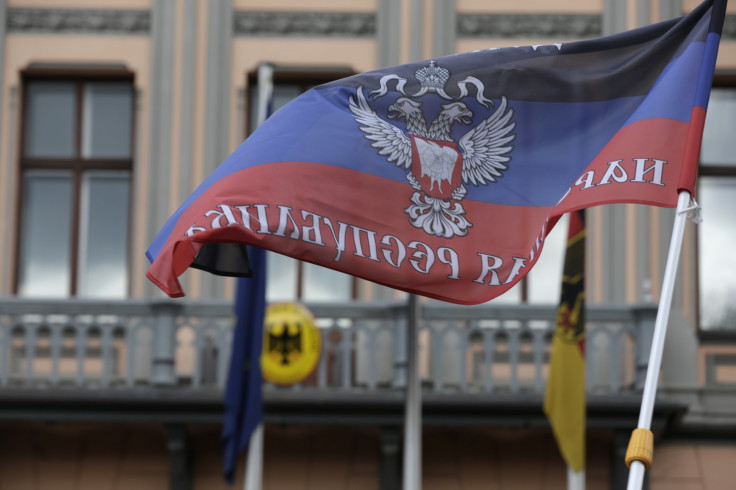Nato Summit 2014: UK to Spearhead 10,000-Strong Joint Expeditionary Force as Latvia Slams Russian Propaganda

The UK will today agree to launch a joint expeditionary force (JEF) with six other Nato member states, which will allow for the rapid mobilisation of 10,000 troops.
Speaking to IBTimes UK on the sidelines of the Nato Summit in Newport, the Latvian Director-General for Security Policy and International Organisations Baiba Braze said that the force, which was agreed in principal in Chicago two years ago, will see the UK and Latvia combine with Denmark, Poland, Estonia and Lithuania will be able to "rapidly respond to crises".
JEF is to be the UK's strongest commitment to date on the ongoing crisis in East Ukraine and Russia.
She lashed out at the potential destabilising effect "Russian propaganda" is having in Latvia, where 26% of the population are native Russian speakers.
"We're not very fond of the Russian massive propaganda going on through television and other sources. There's very brutal violation of freedom of expression within Russia. That is a serious concern because we're a free country and we let a variety of views stream into Latvia, including Russian television. That's not something that's in accordance with our lives."
She said that Latvia has always been multicultural and that while "there are some elements in the community that are more radical than others", there has not been any serious agitation among pro-Russian parts of the population.
"But in Ukraine there was nothing within the country that created this mess, it wasn't a Ukrainian conflict, it was Russian from the outside. We have to also be carefully watching to see if there are any moves from outside our borders so we are careful," she warned.
Earlier this week, the US President met with the Latvian President Andris Bērziņš on a visit to Tallinn, Estonia, en route to Newport for the summit. The symbolic meeting can be viewed as confirmation of Nato's fears over the security of its eastern flank.
Braze said that such fears exist within Latvia, where people have been horrified that "one country can be carved out under a false pretext without any kind of provocation".
"The memories of the past are still fresh," she said. "Stalin and Hitler concluded a pact at dividing Europe and the Soviets came in with their vehicles. The older generations remember that. My mother's generation remember that very well. They are quite nervous.
"The overall attitude is the total shock at how a country with whom we'd tried to build relationship both within Nato, the EU and bilaterally, on a bona fide trustful basis, is able to violate international law, the system on which our relationship is based."
Latvia is to contribute an initial €50,000 to the new trust fund for Ukraine, which will help modernise the country's military. The trust fund, IBTimes UK has learnt, is to be called 'C4', since it will fund operations and equipment in the areas of command, control, communications and computers.
This is to be finalised today (September 5), along with the details of Nato's Readiness Action Plan (RAP), a mechanism that will allow the mobilisation of Nato troops within 48 hours.
Secretary General Anders Fogh Rasmussen described it as a response "to Russia's aggressive behaviour – but it equips the alliance to respond to all security challenges, wherever they may arise".
Latvia will also provide demining training to Ukrainian troops and will continue to provide humanitarian aid.
Braze confirmed that after purchasing 123 surplus combat reconnaissance armoured vehicles from the UK on September 4, Latvia is looking to continue its military spend and that it will grow to 2% of GDP by 2020.
She denied, however, that the Russian crisis could potentially usher in a new arms race. "No I don't think so because Nato is a defence organisation. It's meant to protect its members, not attack. Nato will just do what's necessary to do this."
When asked if this would constitute continuing to rearm, she said: "Obviously if Russia or other countries go ahead and threaten Nato members we will have to respond adequately."
© Copyright IBTimes 2025. All rights reserved.





















